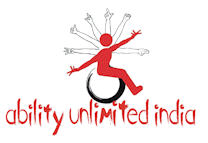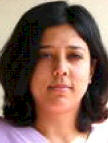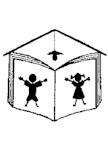| |
|
| Social & Cultural Achievement |
| |
|
|
This award is intended for notable
and meaningful contribution in any social or cultural
field, showing qualities of incentive or leadership,
including outstanding contribution to research,
education, film, social service, rural and urban
development, architecture, environmental and ecological
conservation, preservation of heritage etc. The
award may be given to an individual in the specific
age group or to an institution or group in the above
mentioned fields which have been in existence for
10 to15 years.
Last three years Awardees
|
2008-09
Ability Unlimited India
 |
2009-10
Bahar Dutt
 |
2010-11
Street Survivors India
Estb. : 1990
 |
Ability Unlimited India
(AUI) is nation’s first professional dance theatre
which aims at educating and employing differently-abled
people through innovative choreographic works and
public performances that integrate arts with career
opportunities and training. The arts are used as a
vehicle to broaden the perspective and resolve issues
of inclusion facing such people. It gives messages
of equality, dignity, equal opportunities and participation
of such under-privileged people so that they can be
on the same platform as the normal people.
Ability Unlimited has a three-fold agenda. First,
it advocates the use of arts and dance as therapeutic
tool for healing. Second, it trains such special people
in all spheres including theatrical technical aspects,
and third it helps them become professional artists.
AUI is the only organization to produce historic Indian
therapeutic theatre productions like Ramayana on Wheels,
Durga on Wheels, Women of India, Freedom on Wheels
to mention a few. Artists perform on innovative and
custom made wheelchairs and crutches and move across
the floor space with breathtaking mobility.
The man who spearheads this silent revolution is Guru
Syed Sallauddin Pasha, a dancer of both Bharatanatyam
and Kathak; who combines in himself the qualities
of a Dancer, Director, Dance – Movement therapist
and Social Activist. Pasha is recipient of the National
Award from the President of India for outstanding
performance in the field of empowerment of persons
with disabilities. |
Bahar Dutt a trained wildlife
conservationist has worked for the last ten years
on key wildlife issues in India and abroad. She has
a profound belief that wildlife is not only an attraction
on the earth but it’s our need also.
Bahar has worked in rural areas across Northern India
on a community-based conservation project. She has
been members as well as an expert in many renowned
institutions and committees working in the field of
wild life conservation. She has spent seven years
working with and rehabilitating the Bahelias, a community
of snake charmers in Rajasthan and Haryana. Through
her work with the Joginath Saperas, she has tried
to integrate conservation demands with their need
to retain their identities. Toward this, she has been
working with other conservationists and NGOs to organise
them into a snake rescue service and to develop their
musical heritage with stage programmes such as ‘A
hundred charmers’ that has performed in Italy,
UK and many parts of India. Her interventions have
helped the snake charmers find a new way to earn a
livelihood, which is not in conflict with conservation
laws.
Bahar has transformed environmental journalism from
an obtuse segment on the daily news to an independent
and vital component of mainstream reportage. She strongly
believes that environment and wildlife journalism
must move beyond the pretty pictures and focus on
the imminent crisis before us. She is an effective
defender of wild life. Bahar Dutt, currently Environment
Editor, CNN-IBN uses the camera the way a forest guard
or officer might use a gun.
|
SSI registered as an NGO
way back in 1990, finally established roots in 1998
in Katna, a faraway village, in the district of Murshidabad,
West Bengal, attempting meaningful linkages between
education and
women’s development. Jugnu and Shabnam Ramaswamy
dreamt of this project in order to strengthen a school
initiative called Jagriti for disadvantaged children
which has now grown with the support of friends of
Jagriti.
Initially, ‘Jagriti’ offered sound
Bengali-medium, elementary education to poor out-of
school children. However, changes became pertinent
and now education is offered in the English medium,
with Bengali as a second language so that students
admitted from the primary level upwards are prepared
for higher secondary board examinations under the
Central Board of Secondary Education (CBSE).
Besides education, by 2002, SSI began creating an
informal arbitration court and justice delivery system
at the local Block level, covering some 264 villages.
The objective was to tackle cases involving crimes
against women and provide victims the much-needed
access to justice. This project called Streeshakti
or ‘Women’s Power’ is making a crucial
contribution in building mass legitimacy and recognition
of their work.
The success of Streeshakti formed the basis of Swayamshakti,
a project that harnesses women’s craft skills
to generate economic and social empowerment. The label
Katna’s Kantha represents the collective
effort of over 1500 women - members of a growing network
from over 22 villages of West Bengal. This initiative
pools its earnings back into ‘Jagriti School’,
seeking to educate the women and their children, and
uniting the women with each other.
|
|
|
| |
|
|